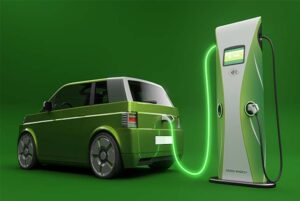 Electric Vehicles are greener than traditional combustion-based vehicles and Electric Cars Greenwashing by various OEMs has been an ongoing debate that has been a part of the discussion for some time now.
Electric Vehicles are greener than traditional combustion-based vehicles and Electric Cars Greenwashing by various OEMs has been an ongoing debate that has been a part of the discussion for some time now.
However, the overall sustainability and eco-friendliness of EVs depend on several factors.
Let’s explore some of the key reasons why electric cars can be considered greener and also touch on the common reasons for Electric Cars Greenwashing in the automotive industry.
Claims Proving Electric Cars Are Greener
- Lower Tailpipe Emissions: The most significant environmental advantage of electric cars is that they produce zero tailpipe emissions. Traditional gasoline and diesel vehicles emit various harmful pollutants, including carbon dioxide (CO2), nitrogen oxides (NOx), and particulate matter, contributing to air pollution and climate change. Electric cars, on the other hand, do not emit any tailpipe pollutants during operation, making them cleaner in terms of local air quality.
- Reduced Greenhouse Gas Emissions: The environmental benefits of EVs extend beyond zero tailpipe emissions. The overall greenhouse gas emissions associated with electric vehicles depend on the electricity generation mix in a particular region.
- Energy Efficiency: Electric motors are generally more energy-efficient than internal combustion engines. EVs convert a higher percentage of the energy from the grid into usable power to move the vehicle, while traditional cars waste a significant amount of energy as heat during combustion.
- Lifecycle Emissions: Studies have shown that over the lifetime of an electric car, considering manufacturing emissions, charging emissions, and end-of-life recycling, EVs can still have lower carbon footprints compared to conventional vehicles.
- Advancements in Battery Technology: As battery technology improves, the environmental impact of producing batteries is decreasing. Research is ongoing to develop more sustainable battery materials and recycling methods, further improving the eco-friendliness of electric vehicles.
5 Reasons for Electric Cars Greenwashing
 Greenwashing can be defined as the practice of misleading consumers about the environmental benefits of a product or service.
Greenwashing can be defined as the practice of misleading consumers about the environmental benefits of a product or service.
In the automotive industry, some common reasons for Electric Cars Greenwashing related to electric vehicles include,
-
Exaggerated Environmental Claims
Some companies may overstate the environmental benefits of their EVs to create a positive image without providing sufficient evidence or transparent data to support their claims hence, promoting Electric Cars Greenwashing.
-
Selective Data Presentation
Electric Cars Greenwashing can occur when companies cherry-pick data or use a narrow scope to highlight certain aspects of their vehicles that seem environmentally friendly while downplaying less eco-friendly aspects.
-
Offsetting Emissions
Some automakers may claim their electric vehicles are green by offsetting emissions through various means, such as purchasing carbon credits or supporting environmental projects, without addressing the actual emissions from their manufacturing processes or supply chains.
-
Lack of Transparency
Electric Cars Greenwashing can thrive when companies lack transparency about their products’ environmental impacts, making it challenging for consumers to make informed choices.
-
Marketing Spin
Some companies may use clever marketing techniques to create an illusion of environmental responsibility without taking substantial steps to improve the sustainability of their products.
Are Electric Cars Green or Not?
 To get a clearer perspective on Electric Cars Greenwashing, let’s discuss some of the major four Reasons Needed to Prove if EVs are Greener or not.
To get a clearer perspective on Electric Cars Greenwashing, let’s discuss some of the major four Reasons Needed to Prove if EVs are Greener or not.
-
Mining for Batteries
While it seems that all will be well in terms of supply, we must not overlook the negative environmental effects of rare earth elements (REE) extraction.
The rare earth elements used to make batteries for Electric Vehicles, such as lithium, are extracted from below the planet’s surface, in other words, mined.
According to a recent analysis done by Chinese Society of Rare Earth, producing 1 ton of REE (rare earth elements) requires 75 tons of acid waste and 1 ton of radioactive residues.
As a result, the energy required to manufacture these batteries also accounts for approximately half of their environmental effects because the majority of this energy is not derived from low-carbon sources.
-
Batteries Recycling
Lithium-ion batteries have a very complex combination of chemical ingredients and very small amounts of lithium, hence making commercial recycling an unappealing prospect.
This does not make EVs any greener. Nonetheless, as the demand for EVs grows, it has become more interesting to find out how to recycle or recapture REEs.
As a result, there’s a good possibility that a robust battery recycling market will continue to grow, helping electric cars to become more environmental-friendlier.
-
Charging Grid Sustainability
Quoting it better, if the source of energy to power these electric cars doesn’t come from solar panels, wind turbines or even nuclear or hydroelectric, then their CO2 emissions will always be higher.
For example, if the electricity used to charge these cars comes from the burning of fossil fuels, it doesn’t matter if these vehicles are not polluting while being driven, as this pollution was already released in some distant power plant.
-
Not 100% Emission Free
Electric vehicles are not completely emission-free cars. While they do not emit CO2 when being powered, CO2 emissions are a factor during their manufacture and generation of energy stored in their batteries.
For instance, mining operations to remove rare earth metals used in batteries can consume a lot of electricity thereby, polluting the environment.
When it comes to electricity generation, if the engine is powered by fossil-fuel-derived energy, then it is still leaking CO2 into the air, from a remote power plant rather than the tailpipe.
Considering battery recycling, this is still a costly and newly evolving operation, with the majority of EV batteries not yet recycled.
 To avoid falling for Electric Cars Greenwashing, consumers should research and critically evaluate the environmental claims made by automakers.
To avoid falling for Electric Cars Greenwashing, consumers should research and critically evaluate the environmental claims made by automakers.
Additionally, governments and regulatory bodies play a crucial role in setting standards and ensuring transparency to prevent Electric Cars Greenwashing practices in the automotive industry.

